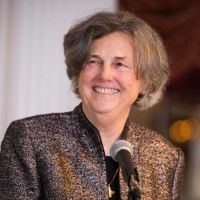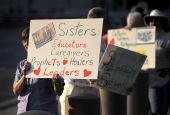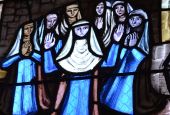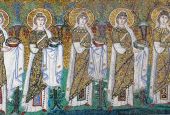Phyllis Zagano is an internationally acclaimed Catholic scholar and lecturer on contemporary spirituality and women's issues in the church. Her award-winning books include Holy Saturday: An Argument for the Restoration of the Female Diaconate in the Catholic Church (First Place, 2001 Catholic Press Association and 2002 College Theology Society), Women & Catholicism: Gender, Communion, and Authority (Second Place, 2012 Catholic Press Association), Women Deacons? Essays with Answers (First Place, 2017 Catholic Press Association) and Women: Icons of Christ (Second Place, 2021 Catholic Media Association).
Her writing is widely translated — her best-selling On Prayer: A Letter for My Godchild is in Indonesian, Spanish and Italian as well as English — and she edited the Liturgical Press' "Spirituality in History" series.
She belonged to the 2016-2018 Papal Commission for the Study of the Diaconate of Women. Winner of two Fulbright awards, her biographical listings include Marquis Who's Who. Her professional papers are held by the Women in Leadership Archives, Loyola University, Chicago. She holds a research appointment at Hofstra University, Hempstead, New York.




